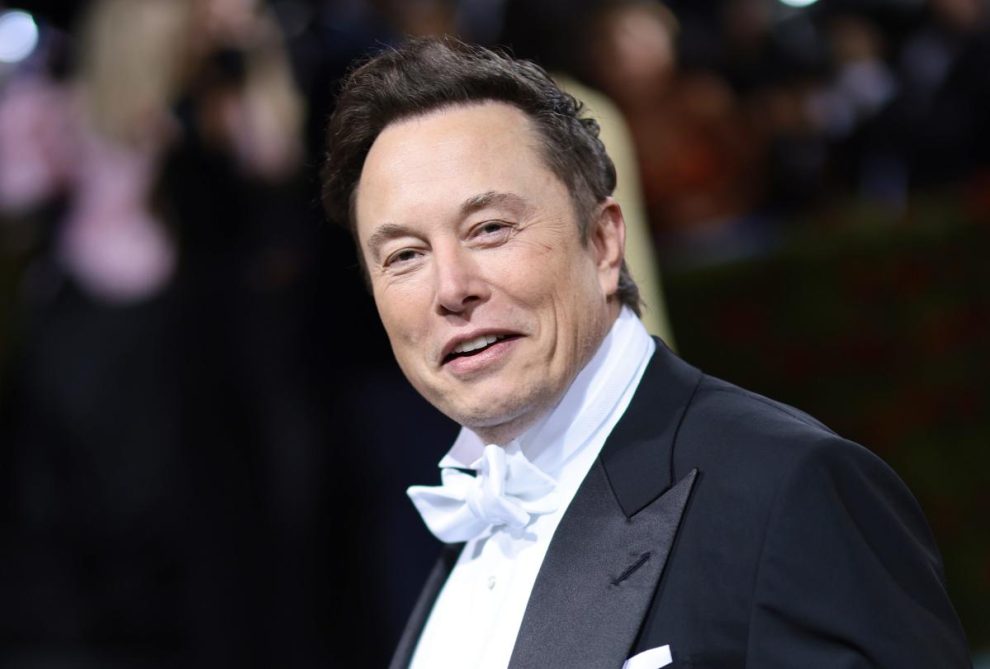Twitter’s new CEO Elon Musk wants the social media platform to look overseas for inspiration.
Musk told an all-hands meeting on Monday that Twitter should use its presence in Japan as a model it charts its future, saying the country is an example of what Twitter should aspire to be “ideally in every country without exception,” according to The Verge.
“It may seem as though Twitter is U.S.-centric, but if anything it’s Japan-centric,” Musk reportedly said, adding that “there are roughly the same number of daily active users in Japan as there are in the U.S., despite the fact that Japan has one-third of the population of the U.S.” Twitter did not respond to Fortune’s request for comment.
Twitter is Japan’s third-most popular social media service, according to data compiled by Comnico, a Japanese social marketing agency. Twitter has 45 million monthly active users, behind messaging app Line (92 million active users) and YouTube (69 million monthly active users). That puts Twitter ahead of Facebook, which has 26 million monthly active users in the country.
Twitter’s reach in Japan ranks the country as Twitter’s second biggest market, behind the U.S. Japan’s biggest brands use the service to engage with their followers, and influencers tweet out updates to their schedules and promote their content.
While other services might have more total users in the country, Twitter has “an outsized influence on Japan’s culture, like in the U.S.” says Jay Allen, publisher of Unseen Japan, a newsletter that monitors Japanese news and social issues. “Cute viral tweets are a mainstay of morning news programs.”
Twitter has also shaped Japanese society, Allen says. “There’s this impression that Japan doesn’t like talking about politics”, he says, “but if you can read Japanese Twitter, you’ll realize that’s not actually the case. A lot of conversations ended up happening on Twitter and have really moved the needle in terms of social progress, on issues like women in the workplace and sexual harassment.”
Musk seems to want Twitter to replicate its prime position in Japan in other markets like the U.S., but experts warn that changes Musk has implemented since buying Twitter could risk the service’s status in the country.
Why is Twitter so big in Japan?
Jason Karlin, a media studies professor at the University of Tokyo, says Japan’s use of Twitter started to increase in 2011 after the Tohoku earthquake and tsunami and during the subsequent crisis at the Fukushima power plant. “People were using Twitter as a way to get instant information about the various crises, particularly because the crisis was so protracted and the recovery efforts took such a long period of time,” he says. Japanese users continue to flock to Twitter for regular earthquake updates.
The Japanese writing system, which uses characters rather than letters, is also better suited to Twitter’s microblogging service. The characters allow Japanese internet users to cram more content into a single tweet. “We often struggle to keep our [English] translations of Japanese tweets to 280 characters!” Allen says.
Japanese users are also drawn to Twitter’s acceptance of anonymity, which Karlin notes has long been a part of Japanese internet culture. The country’s communications ministry in 2015 reported that 76.5% of Japanese Twitter accounts were held under pseudonyms, compared to 15% of local Facebook accounts. (An 2017 analysis of a random sample of 100,000 Twitter accounts found that 26% of users did not use their full name, though the researchers admitted this was likely an undercount.)
“Social ostracism can be pretty harsh in Japan,” Allen says. “An unpopular opinion or something that goes viral could have pretty nasty consequences in day-to-day life.” A “a very strong right wing presence on social media” can engage in intimidation, Karlin says, which may encourage users to be pseudonymous.
Is Twitter’s chaos hurting Japan?
Other aspects of Twitter’s presence in Japan may be less appealing to the platform’s new CEO who prizes free speech. “Extolling Japan as some kind of ideal location for envisioning social media seems kind of misplaced,” Karlin says, noting that Japan faces similar problems with political speech and content as other countries. He also notes that Japan has tougher rules on political speech, such as limits on when politicians can campaign and the type of campaigning they can engage in.
And Musk’s early decisions as CEO, such as mass layoffs and tweaks to some of Twitter’s underlying systems, could jeopardize the platform’s presence in Japan. The country submits more requests for Twitter to take down content than any other country, according to the company’s own transparency report.
Karlin says such requests are likely handled by a local, Japanese-speaking staff. “If those people are being cut, there’s a danger that content moderation on Twitter is going to dry up,” he says, “and that’s going to be very disturbing for the Japanese government.” (Japanese media reported that some of Twitter’s Japan-based employees were laid off, but the extent of the job cuts is unclear.)
Some Japanese users have considered moving to other Twitter-like platforms like Mixi, a locally-developed social network popular in the early 2010s that faded amid Twitter’s rise. However, Allen says that he isn’t seeing “an actual major movement” to alternatives like Mastodon. Allen says that Japanese Twitter users are more concerned about Twitter’s ability to keep its feed running than about safety and content moderation, which dominate the Musk-era debate around Twitter in the U.S.
Musk himself remains a popular figure in Japan, with some Japanese Twitter users celebrating his push to end remote work at Twitter, repeating Musk’s belief that working at home is equivalent to not working at all.
Source: Fortune





































